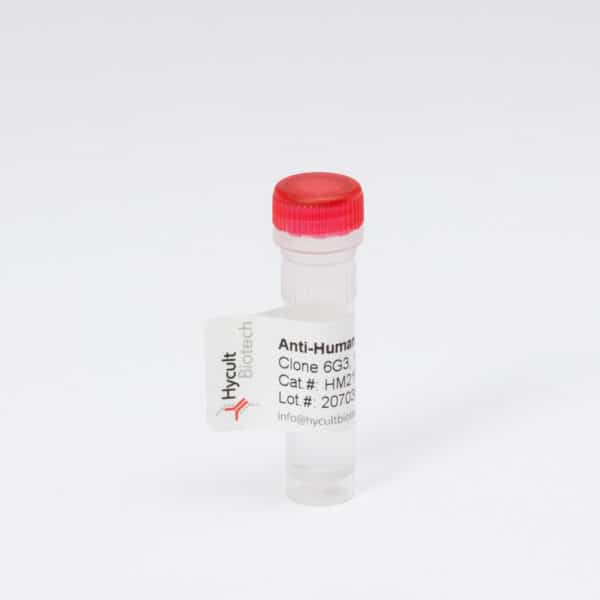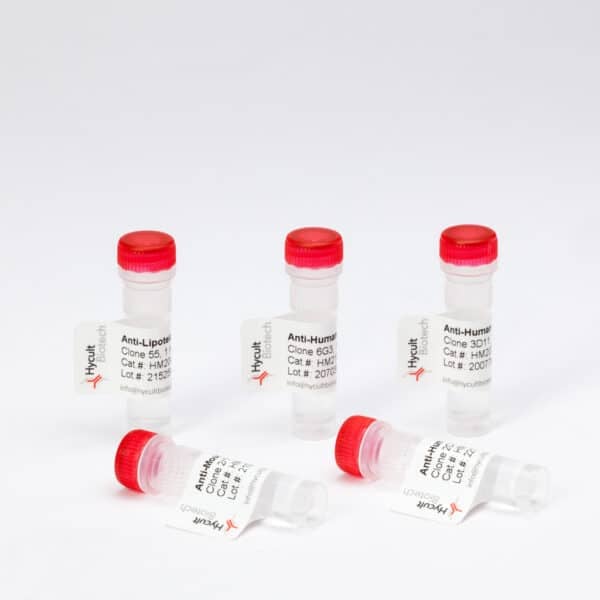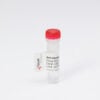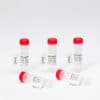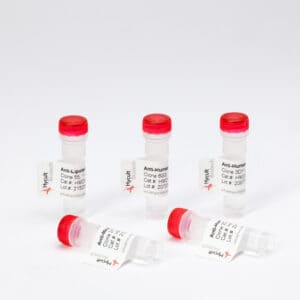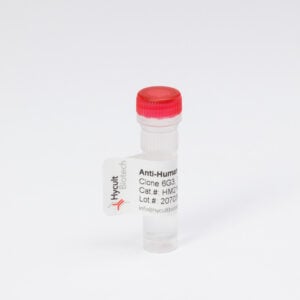MPO, Mouse, mAb 8F4
The monoclonal antibody 8F4 recognizes mouse myeloperoxidase (MPO).
Read more€133.00 – €565.00
The monoclonal antibody 8F4 recognizes mouse myeloperoxidase (MPO).
MPO is a glycoprotein produced as a single precursor, which is subsequently cleaved into a alpha and beta chain. In human the biologically active MPO is a 150kDa tetramer composed of 2 glycosylated alfa chains of 59-64 kDa and 2 beta chains of 14 kDa. MPO is stored in azurophilic granules of polymorphonuclear leukocytes and is rapidly released into the phagosome and extracellular space during inflammatory conditions.The enzyme catalyzes the conversion of chloride and hydrogen peroxide to hypochlorite, a potent oxidant, which functions in host defense against microorganisms.
Involvement of MPO has been described in several human diseases, such as cardiovascular disease, airway inflammation, lung cancer, Alzheimer’s disease and multiple sclerosis. A positive correlation between elevated MPO levels in serum and cardiovascular disease suggest an interesting role for MPO as an diagnostic marker, making it possible to identify patients at risk for future cardiac events. Furthermore, there are some autoimmune diseases, in which MPO is targeted by antineutrophil cytoplasm antibodies. Studies with MPO-knockout mice have shown an increased susceptibility to pneumonia following intratracheal infections. Moreover, MPO deficient mice are more susceptible to experimental autoimmune encephalitis, a T cell-dependent neuronal disease, and have an increased expression of arteriosclerotic plaques compared to wild-type mice.
The anti-mouse MPO monoclonal antibody 8F4 recognizes natural MPO in biological solutions by ELISA, in frozen tissue sections fixed with acetone and in flow cytometry using a cell permeabilization method.
You may also like…
-
View product €380.00
You may be interested in…
-
View product €133.00 – €565.00
-
View product €133.00 – €414.00
-
View product €133.00 – €1,245.00
